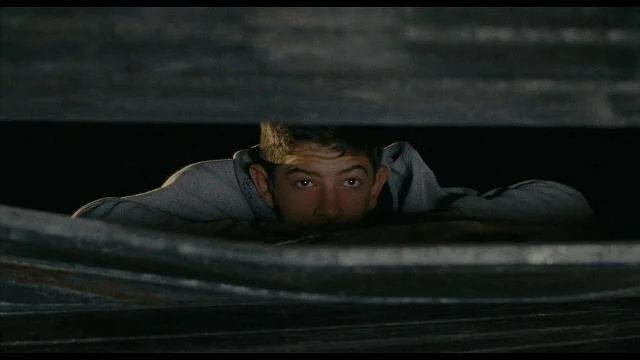The Ciambra
A keenly observed portrait of growing up in a Romani community in Calabria.
Pio Amato
Two of the best films released in 2017, Dunkirk and Detroit, had the common aim of making the audience feel that they were actually experiencing the events depicted on the screen. At its best, this second feature from the Italian writer/director Jonas Carpignano achieves a similar effect. Like those earlier works, it eschews providing back-stories for its characters and instead immerses us in the world of its central figure, a 14-year-old boy named Pio played by the non-professional actor Pio Amato. Such casting has often been a feature of Italian cinema, but even there it is rare for a filmmaker to do what Carpignano has done here which is to give Pio a vast number of relatives and then to cast these roles utilising members of the main actor's real-life family. Our sense of being immediately caught up in this life-style - the family are Calabrian gypsies - is aided by the dexterous use of much hand-held camera work and by the sharp editing of Affonso Gonçalves.
This success marks out Carpignano as a director to watch, but that is not to say that The Ciambra is in the same league as Dunkirk or Detroit when considered as a whole. Those films both offered a strongly dramatic situation that readily held the audience. Here we have a film that is rich in atmosphere but short on compelling story-telling (it is not always easy to identify the daily members individually). Only late on in a work that self-indulgently lasts for nearly two hours does Pio's situation develop into a moral drama, one that ultimately has ironic things to tell us about what is involved when a boy becomes a man.
Prior to that The Ciambra concentrates on Pio's admiration for his older brother, Cosimo (Damiano Amato), in whose criminally inclined footsteps he wants to follow (stealing cars is just one of the local past-times) and on his one rejection of what is expected of him. He may be rebellious and ready to follow the not unfamiliar path of smoking cigarettes, drinking and trying drugs but it is more significant that, unlike the other Romanis, he does not look down on the Africans living in that part of Italy. Indeed, one such from Burkina Faso, Ayiva (Koudous Seihon), despite being considerably older becomes his best friend. Carpignano's work here is marked by two notable qualities - it is unsentimental and non-judgmental - but only the sense of irony at the end suggests the filmmaker's moral perspective, and it has to be said that as a portrait of a Roma community The Ciambra, despite being characterful (the matriarch Iolanda has a wonderful face), presents a resolutely unprepossessing view of their behaviour whether you blame them for it or not.
Pio Amato himself is a firm presence at the centre of the film, but the work is less secure when it moves away from a naturalistic tone (some passing symbolical touches sit uneasily with the rest and at times the narrative is built up unpersuasively). But, uneven though it is, much of The Ciambra comes across involvingly and it is a film with a character of its own.
MANSEL STIMPSON
Cast: Pio Amato, Koudous Seihon, Iolanda Amato, Damiano Amato, Patrizia Amato, Francesco Pio Amato, Susanna Amato, Rocco Amato, Nicolas Damiano Amato, Riccardo Amato, Simona Amato, Cristina Amato, Antonella Amato, Gesuele Massimo Amato, Pasquale Alampi, Faith Uchenna Eburu, Kingsley Asimung, U Ciccareddu.
Dir Jonas Carpignano, Pro Paolo Carpignano, Jon Coplon, Gwyn Sannia and Ryan Zaciaras, Screenplay Jonas Carpignano, Rodrigo Teixeira, Marc Schmidheiny and Christoph Daniel, Ph Tim Curtin, Pro Des Marco Ascanio Viarigi, Ed Affonso Gonçalves, Music Dan Romer, Costumes Nicoletta Taranta.
RT Features/Sikelia Productions/Stayblack Production/Rai Cinema/Film i Väst/Haut et Court-Peccadillo Pictures.
118 mins. Italy/Brazil/USA/Sweden/France/Germany. 2017. Rel: 15 June 2018. Cert. 15.


